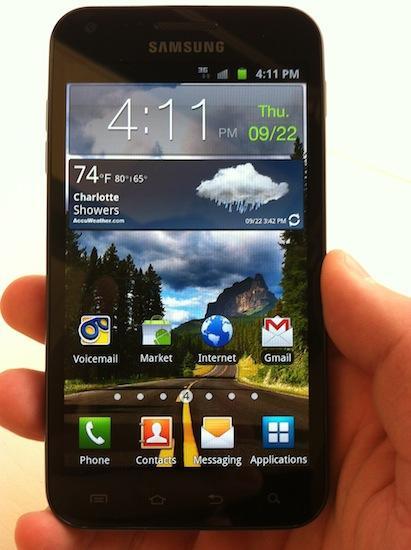
A few of my recent articles have been about the overall increase in the cost of owning a smartphone. The pocket-sized computers themselves are perpetually being improved, yielding a higher average price tag; new networks are continually being built and expanded; and the smartphone adoption rate is higher than ever. More users are consuming more data and carriers have been forced to cap usage and implement overage fees.
In short, everything about owning and using a smartphone through a major wireless carrier is becoming more expensive with every passing moment. We postpaid consumers are gradually paying for faster speeds, but also paying more for less usage.
In light of all the increasing rates and expensive devices, however, there are countless, substantially cheaper alternatives that are worth considering. Better known as pre-paid carriers, mobile virtual network operators (MNVOs) are beginning to pop up left and right, taking advantage of inflating postpaid prices.
MNVOs such as Boost Mobile and Virgin Mobile, which utilize Sprint's CDMA network, have been around for many years now. They offer affordable, unlimited service and some low-end to mid-range smartphones that won't break the bank. With Virgin Mobile, you can pay just $55 per month for unlimited talk, text and data. Likewise, unlimited everything on Boost is $50 per month. Boost includes a perk called Shrinkage that reduces the monthly payment the longer you use their service. And, best of all, you can cancel or switch service, at any time, without cancellation fees.
In February, a new service called Ting entered the MNVO scene, offering completely customizable service packages on Sprint's 3G network. (Once Sprint launches their LTE network, Ting will offer 4G service as well.) With Ting, you can pay for what you want to use, and anything you don't use gets credited back to your account. The data packages are relatively expensive – $3 for just 100MB and up to $60 for 3GB, versus $50 for 5GB on AT&T – but it's a good deal for non-power users.
And the most recent MNVO to enter the scene is Voyager Mobile. Voyager Mobile's plans start at just $19 (plus taxes) per month, which will buy you unlimited talk and text messaging. Increase that rate to $39 per month and you also get unlimited Web access. Voyager Mobile also works on Sprint's 3G and WiMAX networks. Unlike the other MNVOs, however, Voyager will offer some higher-end devices, like the Samsung Galaxy S II Epic 4G Touch from Sprint.
The downside to pre-paid MNVOs, though, are that there are no subsidies and subscribers are lower priority on the network than, say, those who are in contract with the parent network.
Depending on the pre-paid carrier you go with, device prices can vary greatly. The mid-range LG Optimus Elite on Virgin Mobile is a respectable $149.99 sans contract. The LG Marquee on Boost is – also a mid-range device – is $249.99. The Samsung Galaxy S II Epic 4G Touch – which is a high-end phone – on Voyager Mobile will cost a staggering $549.00.
Despite the prices of the phones not being subsidized, they will pay for themselves over time through cheaper service plans. Every month, I pay AT&T $110 plus tax for 450 minutes, unlimited text messaging and 5GB of data. The HTC One X with a two-year agreement costs $199.99 plus tax. Over the course of the two-year contract, I will pay AT&T just over $3,000 (barring I don't have any insane overage fees). Say with Voyager Mobile, I buy the Epic 4G Touch for $549.00 plus unlimited calling, text messaging and data for $39.00 per month (plus tax). Over the course of two years, I would end up paying Voyager roughly $1,550.00, and I don't have to stay with them for any specific amount of time.
There's no denying that there are many ways to and several options that will save consumers quite a bit of money when it comes to wireless service and smartphones. The problem is that MNVOs and other pre-paid providers do not get newly released devices immediately. They are usually six months to a year behind with comparable device offerings. And MNVO customers do not immediately have access to newer networks. Boost and Virgin, for instance, still only offer 3G service to their customers, while Sprint offers WiMAX and will soon offer LTE. Boost and Virgin will both offer 4G service beginning May 31st.
As postpaid rates continue to increase, MNVOs will continue to thrive. If you are not happy with your current provider and feel you are paying too much for service, pre-paid is certainly an option.
Tell me, readers. Would you be willing to give up the latest and greatest (both devices and service) for financial relief? Have you considered trying a pre-paid carrier over postpaid? If you have actually made the switch, feel free to share your experience thoughts in the comments below!